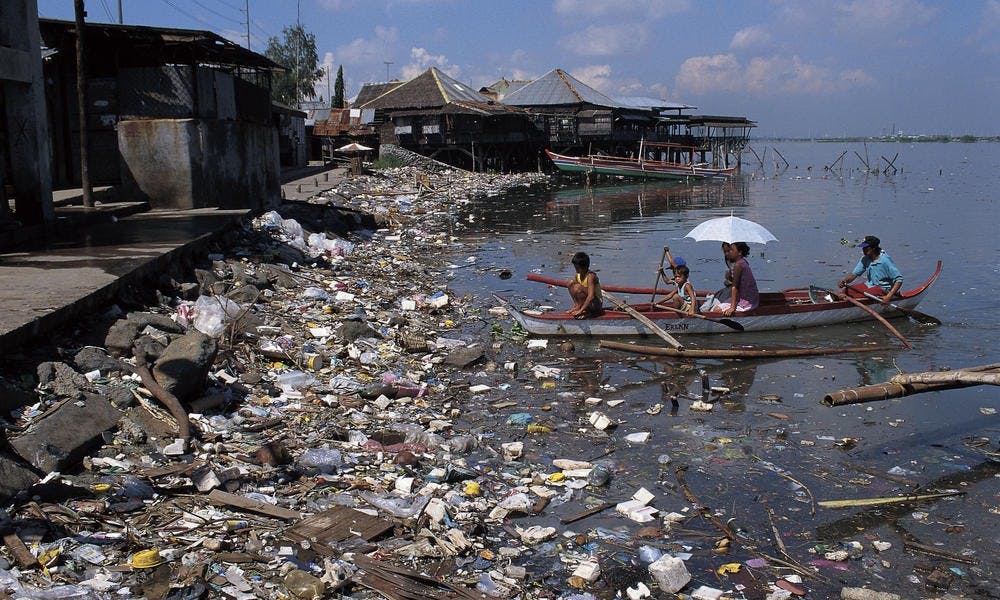Over the past 200 years, since the start of the Industrial Revolution, pollution has increased sharply.
Defined as contaminants in the natural environment, pollution can take the form of light, water or even noise. Yet one of the worst types of pollution is air pollution.
Fuel combustion, resulting from driving cars and trucks and industrial manufacturing, releases carbon dioxide, carbon monoxide, sulfur dioxide, nitrogen oxides and lead into the air.
Air pollution has directly contributed to two-thirds of the total contamination. Not only has pollution negatively affected the environment, the process has also caused the onset of chronic diseases such as ischaemic heart disease, stroke, chronic obstructive pulmonary disease (COPD) and lung cancer, as well as water-and vector-borne diseases such as E. coli and malaria.
A new study published in The Lancet demonstrated that an estimated nine million people, nearly one in six, die of diseases caused by pollution.
The researchers found that in low and middle-income countries such as Kenya and Bangladesh, one out of every four people dies of a pollution-related ailment. The poor and the young are particularly vulnerable.
Workers in poor conditions, such as those in dye factories and miners who are exposed to toxins, have an added risk to develop cancer, which results in an additional 800,000 deaths annually. Yet the governments of these countries have yet to respond to the growing death toll.
Most of the deaths have occurred in India and China, with an estimated 2.5 million and 1.8 million deaths respectively. The study that investigated the widespread effects of pollution was led in part by Philip Landrigan, dean for global health at the Icahn School of Medicine at Mount Sinai and co-chair of the commission behind the report.
“Going into this, my colleagues and I knew that pollution killed a lot of people. But we certainly did not have any idea of the total magnitude of the problem. I think all of us were really surprised when we saw this,” Landrigan said in an interview with The Washington Post.
The study, which was conducted over two years and across over 130 different countries, aimed to raise global awareness of pollution and galvanize political response and subsequent resources needed to confront pollution head on.
To do so, the authors made six key recommendations, ranging from integrating pollution prevention into country and city planning processes, to researching pollution control to drive change in pollution policy.
As pollution continues to worsen around the world, the problem adds not only to health issues but also financial issues. The authors of the study debunked claims that pollution control stifles economic growth by pointing to the U.S.
Since Richard Nixon introduced the Clean Air Act of 1970, air pollution has decreased by 70 percent, and the GDP has increased by nearly 250 percent.
Despite efforts to combat pollution, many still subscribe to the so-called “environmental Kuznets hypothesis,” a theory developed by economist Simon Kuznets.
This hypothesis states that as a society moves away from an agrarian economy and industrializes, pollution and environmental degradation are necessary evils that will disappear as the economy grows. Landrigan dismissed this idea, calling it an old wives’ tale.
Landrigan and the other authors urged countries to reduce pollution to ameliorate health conditions for their citizens while prospering economically in the process of cleaning up the environment.
“It doesn’t have to [get worse]. It’s not an inevitable outcome. Pollution control is a winnable battle,” Landrigan.
The authors of the study have begun to organize a new Global Pollution Observatory, an institution dedicated to providing data to countries to assist in their prioritizing pollution.
Gina McCarthy, a former Environmental Protection Agency administor talked to The Washington Post about the importance of continuing their efforts.
“It’s very clear if you go to other countries, and it’s clear if you go to some of our own communities that they are being held back because of the impact of pollution on their kids and their elderly,” McCarthy said. “And we have to stop thinking that because we can’t see the pollution and it’s not as visible that it’s not there.”





